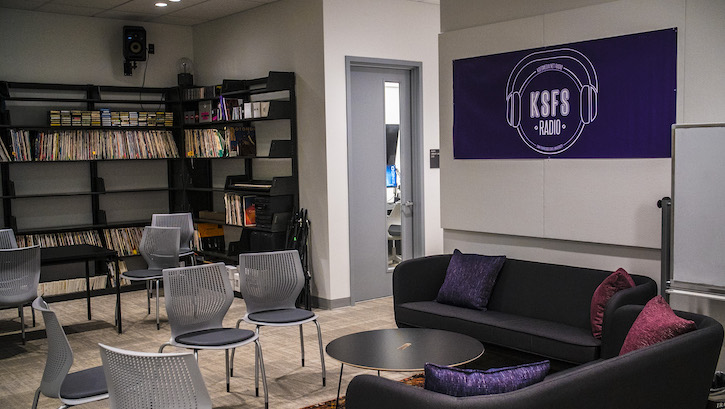Vision
To be the preeminent educational hub in content creation for evolving technologies and to prepare students for a radically innovative media industry.
Mission
The Department of Broadcast and Electronic Communication Arts prepares students to create and critically evaluate content in the media arts. Our curriculum provides a balance of theory and practice, while guiding students in the use of media to effectively communicate ideas that serve the evolving needs of society. Students go on to become innovative and ethical industry leaders who advance equity, social justice and global citizenship.
- Academic Excellence and Impact
- Eminence in teaching and research
- Scholarship that deepens critical thinking
- Creativity, innovation, and resourcefulness
- Inclusiveness and Diversity
- Civility and free exchange of ideas
- Local and global community engagement
- Appreciation for diverse perspectives and dissent
- Integrity and Transparency
- Academic freedom
- Ethical behavior
- Shared governance
- Stewardship
- Strategic and equitable financial management
- Emphasis on sustainability and advancement
- Implementation of policies that support the mission and vision statements
- Apply aesthetic theory to the practice of media production.
- Use effective communication strategies, including media terminology as appropriate, in the creation and analysis of electronic and digital media content.
- Integrate research related media theory into the conception and distribution of media content.
- Conceptualize, design, and write stories for electronic and digital media.
- Demonstrate proficiency in fundamental and advanced media production concepts and techniques.
- Analyze and write about electronic and digital media’s role in and impact on culture and society.
- Critically evaluate business trends and the legal and regulatory frameworks of electronic and digital media industries.
- Promote ethical standards and social justice in the creation and distribution of electronic media.
- Understand, compare and apply multiple theories and approaches from the body of research on mediated communication.
- Understand and demonstrate basic skills in audio, video or multi-media production.
- Understand and apply ethical standards and principles in analysis or creation of media content.
- Understand theories and methods of media and cultural criticism, social scientific research methods, or studies in media aesthetics; apply these theories in research or production.
- Demonstrate skills in effective research and writing as appropriate for project proposals, media scripts, research essays and other media related written work.
- Understand the skills necessary for advanced level work in media research and criticism, or media production; complete a project of significant length to demonstrate this proficiency.
- Demonstrate mastery of aesthetics, production and writing for and about broadcast and electronic media.
- Students will write critiques of professional broadcast and electronic media programs.
- Students will write treatments and scripts for broadcast and electronic media programs.
- Students will demonstrate advanced skills in broadcast and electronic media production.
- Apply appropriate theory to the creation and evaluation of broadcast and electronic media storytelling.
- Students will write literature reviews that evaluate and synthesize relevant theory and research concerning effective broadcast and electronic media storytelling.
- Students will apply relevant theory to the analysis of broadcast and electronic media programs.
- Conduct original research on the effects and role of broadcast and electronic media in society.
- Students will analyze the strengths and weaknesses of broadcast and electronic media theory and research.
- Individually and in groups, students will conduct original research about the role of broadcast and electronic media in society.
- Students will write original research papers and submit them to academic conferences.
- Analyze the ethical, legal, and business practices in broadcast and electronic media.
- Students will employ theories of media processes to understand the way broadcast and electronic media function in society.
- Students will apply ethical theories and professional codes of conduct to the evaluation of broadcast & electronic media activities.
- Students will develop the skills to secure funding for broadcast & electronic media content production and distribution.
- Apply pedagogical theory to the teaching of broadcast and electronic media.
- Students will apply principles of media literacy and pedagogical theory to the development of materials for teaching broadcast and electronic media.
- Students will evaluate undergraduate papers and productions in broadcast and electronic media.
- Students will present lectures in undergraduate classes in broadcast and electronic media.
- Create broadcast and electronic media content grounded in principles of social justice.
- Students will explore the cultural and social justice implications of broadcast and electronic media production, distribution and economics.
- Students will consider social justice implications of the broadcast and electronic media content they produce.
- Students will evaluate professionally produced broadcast and electronic media productions for stereotypes and social justice implications.

